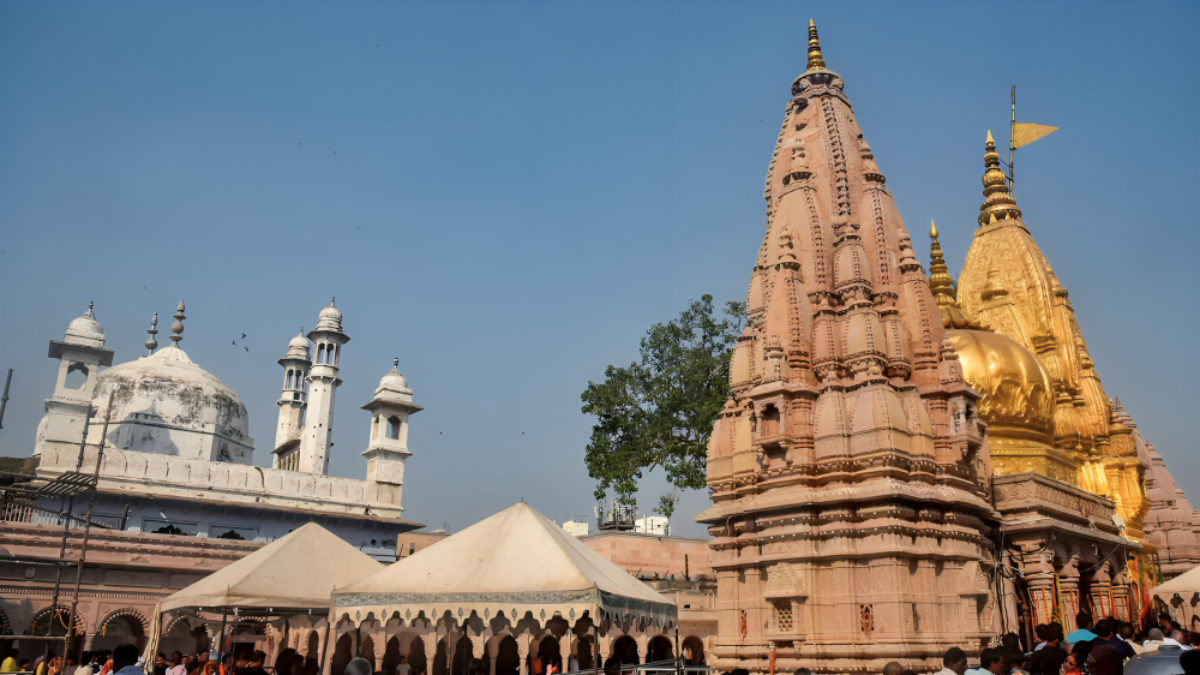The verdict was delivered by Justice Rohit Ranjan Agarwal of the Allahabad High Court, who stated that after thoroughly reviewing the case records and considering the arguments presented by all parties involved, the court found no valid reason to intervene in the district judge’s decision. The district judge had appointed the District Magistrate of Varanasi as the receiver of the property and had also granted permission for religious worship in the cellar of the Gyanvapi Mosque complex. Justice Agarwal pronounced this judgment, affirming the district court’s rulings.
Advocate Prabhash hailed the verdict as a significant triumph for Sanatana Dharma. He emphasized that the judge dismissed the pleas filed by the Muslim side against the District Judge’s order, which means that the puja will continue as usual. The District Magistrate will also continue as the Receiver of the ‘Tehkhana’. He mentioned that the Muslim side has the option to review the decision, but the puja will continue regardless. This statement was given to news agency ANI.
Another advocate, Vishnu Shankar Jain, representing the Hindu side, stated that the Allahabad High Court dismissed the first appeal from the orders of Anjuman Intezamia, which were directed against the orders of January 17th and 31st. He highlighted that the ongoing puja in the ‘Vyas Tehkhana’ of Gyanvapi complex will continue as a result of this decision. He also mentioned that if the Anjuman Intezamia takes the matter to the Supreme Court, they will file a caveat before the top court.
On January 31, the Varanasi court ruled that the Hindu side can offer prayers in the southern cellar of Gyanvapi mosque, known as the ‘Vyas Tehkhana’. The court also instructed the district magistrate to make arrangements for the puja and nominate a pujari from the Shri Kashi Vishwanath Temple Trust.
Following this, the Anjuman Intezamia Masajid Committee, which manages Gyanvapi Mosque in Varanasi, filed a plea before the Allahabad High Court on February 1, challenging the Varanasi court’s decision. This plea was filed after the Supreme Court declined to urgently hear the mosque committee’s plea.
It is worth noting that the mosque has four tahkhanas (cellars) in the basement, one of which is still in the possession of the Vyas family, who used to reside there.
However, according to the mosque committee, the ‘Vyas Tehkhana’ is under their possession as part of the mosque premises, and the Vyas family or anyone else does not have the right to worship inside the Tehkhana.
Meanwhile, the Hindu side claimed that the Vyas family conducted religious ceremonies in the basement until 1993, but they had to discontinue it in compliance with a directive.
Asaduddin Owaisi slams Varanasi court’s decision
Earlier, Asaduddin Owaisi, the president of AIMIM, criticized the recent decision made by the Varanasi court, stating that it goes against the Places of Worship Act. He pointed out that the judge who made the decision was on his last day before retirement and had appointed the District Magistrate as the receiver on January 17. Owaisi questioned how the judge could be certain that there was an idol inside the mosque complex, as no prayers had been offered there since 1993. He also expressed his disagreement with the order to open the grills within 7 days, arguing that a 30-day period should have been given for making an appeal. In his view, this decision is incorrect and should be reconsidered.

